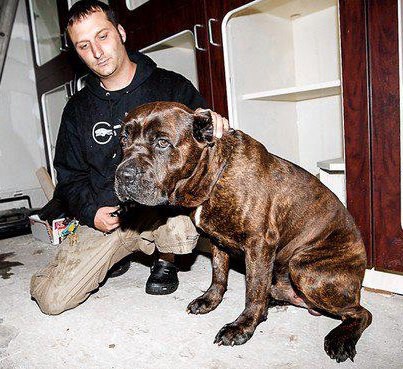Are Newspaper People Really Still Wondering If Journalism Can Exist Without Newsprint?

Decades of often awkward interaction with America’s “print media” professionals has proven (to me) that writers who talk about their medium are bores, and also bad writers. This goes for the people who type up rules for “curating” the Internet and the people who propose “best practices” for typing bullshit on Twitter, but it’s the newspaper person who is most guilty of being terrible all the time. Often applying the term “ink-stained wretch” or “scribe” to himself — and it is always a “him” — the newspaperman looks back on his career (which started when personal computers were already in every grade-school library) and sees not the stories covered or drunken camaraderie of the journalistic fellowship, but the type of harvested plant matter used in the manufacture of the paper used to distribute a particular kind of media product.
Several years ago, I was training a younger editor to replace me on a blog I was quitting, and he informed me with pride that he had no idea how to blog. Computers, in general, were beneath him. “I’m a dead-tree media kind of guy,” he said, on the telephone. It’s the kind of thing he could’ve only picked up reading the Poynter.org website, because by the time he entered the work force, every part of the news gathering and production process was electronic, including a majority of its distribution to readers.
We all develop habits, and the worst of us fetishize these habits that just happened to be the main way of doing something at the time we started doing it. Still, we’re several years into the Tablet Era and I’ve yet to hear a website writer say, “I’m a CorningWare man, myself. What I write is meant to be read through the Corning glass screen of the iPads made in the past two years, and that’s it!” Why has the false idol of newsprint taken such a heavy toll on the intelligence and creativity of people who are supposed to be writers?
So it’s almost 2013, and printed newspapers haven’t been the dominant form of news dissemination for what, 40 years? And the reduced business that somehow became the “golden era” of 1970s investigative journalism lasted for maybe 15 years total, before the massive consolidation of the newspaper industry began in the late 1980s with the closing of most U.S. afternoon papers, effectively halving the newspaper workforce a decade before AOL diskettes darkened the nation’s mailboxes. The era of monopoly/Joint Operating Agreement newspapers was short, painful and not very good for journalism — yet it’s what people in the 21st Century enjoy longing for, because those Macy’s brassiere ads and color home furnishings inserts kept a lot of people employed doing things like copy-editing the pre-edited features syndicate copy that was also being re-copy edited in those other 1,500 daily paper newsrooms around the country.
Anyway, Craigslist and Monster and Yahoo! Movies and Gizmodo and digital this or that did terrible things, in taking revenues from one form of media without actually taking most of those revenues, yet there is no sign anywhere that Americans want less news, or want their aunt on Facebook to cover Syria (unless she’s there!), or have tired of advice columns, automobile ads, personals, Hollywood gossip, horoscopes, weather, stock prices, sports recaps, recipes, murder reports or any of the hundred things newspapers used to be able to sell in an exclusive bundle. And because we have a “newspaper industry” instead of a journalism industry, the newspaper people still need to be punched in the head with stuff like this:
To see those opportunities clearly — to understand exactly what will rise from journalism’s ashes — we have to consider carefully what we mean by the word journalism.
Interestingly, journalism stems from a word that we don’t commonly use in English to refer to news or the actual media through which news is delivered. It’s not newspaperism, it’s not broadcastism, it’s not newsmagazineism. This is not merely a cheeky observation. Because buried in the word journalism is this core concept: modern journalism should be format agnostic. While the word’s root — journal — does convey a physical object, the modern use of the word does not require faith in or a commitment to any specific format.
Wow that is interesting, that topical writing and photography is not legally bound to be printed on pulped Canadian forests.
Next, the Future Journalism Project carefully explains to the ink-stained wretches (of the 1980s) that in other, more foreign countries, sometimes the foreign word for “newspaper” isn’t even part of the accepted name of the industry:
In other languages this gets trickier, because in French, for example, the word for newspaper is actually journal, the same is true for Russian, Italian, and others. I stood in front of an audience of German media executives in 2008 and tried to explain to them how in the English language, our use of the word newspaper was entirely unique. In English we actually took pains to include the medium, the paper itself, in the word, tying us dangerously close to a concept of the medium that trapped the news — and the revenue model that supported it — in its physical form. In German, their choice of the word Zeitung for newspaper was much more fortuitous. Literally, the word means times, as if every newspaper in the German language could claim to be the paper of record for its community! This allows German journalists to understand instinctively that a newspaper is supposed to be timely as well as a medium for connecting to the times in which we live. In Spanish, whoever chose the word periódico for the newspaper was similarly focused on a benefit of the medium — it was regular or periodic.
See? If American words weren’t so stupid, our newspaper reporters would be able to “bridge the digital divide” or whatever.
Meanwhile, forever, it is up to people who never worked in an actual newspaper building to move forward, on FourSquare probably, toward a new kind of reporting that will still be the same kind of reporting but still not on newsprint.
Photo by cliff1066™.
The Thing EVERYONE Is Talking About
“’You can’t do anything without hearing about it,’ Ms. Viorst said, recalling how it invaded a recent Hanukkah visit to friends. ‘It weaves its way into your lexicon,’ she said.”
— Guess what it is! Guess GUESS GUESSSSSSSSSSSS!!!!!!!!
The Year In Cheating

2012 was the worst year ever for infidelity in America. I know that because I am American, and in 2012, my boyfriend cheated on me. Not only that, my boyfriend cheated on me and I had to recover from it in complete anonymity. Robert Pattinson, cheated on by Kristen Stewart, was invited to unpack this experience on “The Jon Stewart Show.” I was not. Someone shot a video of Scott Broadwell in his darkest hour, after his wife Paula’s affair with General David Petraeus was revealed, walking with somber solidity to his brother-in-law’s house, while Paula gripped his arm with an assuring sense of ownership. No such video exists of me. Finally, while Holly Petraeus was held up as “a great example for military wives,” I was held up as nothing. And yet something — a sense of shared experience, vanity, delusion — makes it impossible to avoid comparing my own situation to these more public betrayals. Here’s my story against the backdrop of 2012’s cuckolded A-listers.
1. Neither Robert Pattinson, Scott Broadwell, Holly Petraeus (or, for that matter, poor Liberty Ross, Rupert Sanders’ wife) had the pleasure of attending the wedding of the person with whom their partner cheated. Nor did any of them kindly agree to do this erstwhile bride the wedding-day favor of picking up butterflies — in the blazing parking lot of a Honolulu supermarket, from a woman/butterfly vendor driving a Blue Volkswagen beetle decorated with, what else, painted pink butterflies — to be released at the end of said wedding. (Nor did any of them endure spending the first hour of this wedding sober because the bride’s wedding planner “didn’t want anyone to get too drunk.” This, when all is said and done, remains the only crime that can never be forgiven.)
2. At no time during the immediate, tender period after the admission of the infidelity was I invited to convalesce — as was Pattinson — at Reese Witherspoon’s house in Ojai. Also, I do not believe either Pattinson or any of the others spent those first weeks of stunned heartsickness sleeping in a wool hat emblazoned with the logo of a Chicago vintage car remodeling outfit called Mobsteel, because I do not believe any of them spent this period sleeping, in winter, in the Sierra foothills, in the unheated bedroom of a friend, which was, to quote the movie Argo, my “best bad idea” about where to go.
3. Nobody spoke to relationship expert Pepper Schwartz about my relationship with my partner. Someone did, however, speak to Pepper Schwartz about Holly Petraeus’ relationship with David Petraeus. Consequently, Pepper Schwartz never said about my partner, “If he lies down and pees on himself, which is hard for a man like that, his wife will likely forgive.”
4. My partner did not lie down and pee on himself, as David Petraeus presumably did. He just left me. My boyfriend and I weren’t married, and we had no children. Several people tried to comfort me that this must have made things easier and while that may be true I don’t know how exactly I could have felt any worse. He and I got together when I was 38. He was the first man I ever loved that I also liked, and I did not want to let him go.
5. Scott Broadwell found out his wife was cheating on him while he was staying in a beautiful bed and breakfast in Virginia. I found out my boyfriend was cheating on me while sitting in my Toyota Yaris in the parking lot of an organic grocery store in northern California, the place where I seem to find out everything.
6. Robert Pattinson, Scott Broadwell, and Holly Petraeus have all been mentioned in The Economist in connection with their partners. When I think of this publication in reference to my own breakup it is around having flung it at my ex-boyfriend (two separate issues on two separate occasions). May I add that despite the sharp incisiveness of The Economist’s writing, it is not a particularly menacing weapon.
7. The Daily Beast ran a headline: Scott Broadwell Proves to Be a Class Act in the Wake of His Wife’s Affair. Were I well known enough to have merited a headline in the wake of my boyfriend’s affair, I am confident the term “class act” would not have appeared in it.
8. When Kristen Stewart cheated on Robert Pattinson, she was photographed wearing an amazing yellow bra. When my boyfriend cheated on me, he was not, to my knowledge, photographed wearing an amazing yellow bra. I reacted to my boyfriend’s cheating on me by spending a lot of time and money on couple’s therapy, by crying a lot, by screaming at him and sometimes at my parents and friends and innocent bystanders, and then, eventually, by standing in a Rite Aid transfixed by the John Mayer/Taylor Swift song “Half of My Heart” and saying to myself, “I hate to admit it, but this pretty much sums it up.” I reacted to Kristen Stewart’s cheating, several months later, by doing a Twitter search for “yellow bra,” “Kristen Stewart” and “cheat,” and, upon discovering that there was a $35 version of the $240 bra she had been wearing, ordering and having two of them express-mailed from Zappos.
9. But one thing I’m almost certain Robert Pattinson, Scott Broadwell, Holly Petraeus and I had in common is that as we were being cheated on, lots of our friends were cheating. I spent about half of this last year screaming at my partner for cheating on me and leaving me and the other half counseling friends of mine who were doing the same to other people. (People who were not me, of course.) One minute it was, “How could you betray me, you fucking asshole?” and the next it was, “Well, if you’re really unhappy, I don’t blame you for looking elsewhere. I mean. What are you going to do?” I even pleaded with a good friend to begin an affair:”You’re 37 and you’re not going to have sex for the REST of your LIFE? Because you have a SON? That’s really your PLAN?”
10. None of the people with whom Kristen Stewart, David Petraeus or Paula Broadwell cheated is an amateur antiques expert who has been kind enough — now that she has essentially moved into my former home, with my former boyfriend — to estimate the value of the items I left behind so that I might choose wisely as to whether to sell them or keep them, and this service, coupled with the fact that I find myself miraculously grateful that my boyfriend left me, turns out to be one for which I am, surprisingly, most appreciative.
11. Neither Robert Pattinson, Scott Broadwell or Holly Petraeus had the recent misfortune of accidentally pushing their Toyota Yaris down an enormous hill and watching it crash into a stone wall. Therefore, neither Kristen Stewart, Paula Broadwell, or David Petraeus was forced, as my now-former boyfriend was, to come over and peel the Yaris from the wall, push it back up the hill, and jack the ruined door shut. (Nor, four hours prior to this accident, did one of them say, “Please do not try to roll-start your car until I come over. I have this image of you trying it yourself and rolling it down a hill and fucking killing yourself.”) Though they have not had this particular experience, I can only hope Robert Pattinson, Scott Broadwell, Holly Petraeus, and even poor Liberty Ross have gotten over being cheated on, because it just happens. You sleep with someone and they sleep with someone else. You love someone and they leave you. Then you push your car down a hill and they push it back up and you watch them and realize they didn’t mean to hurt you, because they, you, no one, from one moment to the next, has any fucking idea what they’re doing.
Previously in 2012 In Review: The 10 Best Music Videos Of 2012 That Are Not Gangnam Style
Sarah Miller is the author of Inside the Mind of Gideon Rayburn and The Other Girl, which were regrettably marketed to teens but should really be read by adults. She lives in Nevada City, CA.
A Brief Recap of the "Facts v. Rhetoric" Election

“Peggy Noonan is someone who is very, very skilled at making bullshit look like some elegant soufflé,” Silver says. “She’s very good at rhetoric and argument, but it’s still not grounded in the truth — it all falls apart every four years, but I don’t think she’ll be out of a job any time soon.”
Sitcom Not A Documentary
“There are plenty of reasons to like Mindy Kaling’s sitcom, but thus far, its portrayal of gender dynamics in healthcare hasn’t been very realistic.”
Apple Customers Rich

Google’s Android phones are used by more people, yet Apple’s App Store sells 400% more than Google’s online store for Android apps. How is this even possible? Consumer tech experts say it’s because Apple started early and has stringent quality control and also has a whole lot of iTunes account holders who typed in their credit card information before they even owned a smart phone.
Consumers are more willing to fork over their money for an iOS app, because they know they’ll probably get their money’s worth, says app developer Zak Tanjeloff with DLP Mobile. “The App Store has a higher proportion of quality apps, thanks to the approval process,” he says. “That means developers can, and have, charged more for their apps.”
These may be true facts, but another bit of Apple news out today suggests what everybody already knows: Apple customers have plenty of money to spend on more Apple things.
The iPad Mini, for example, was marketed as an actual iPad tablet computer. It was assumed by many analysts that iPad Mini sales would “cannibalize” new sales of the full-sized iPad Retina. This assumption, however, was based on another assumption that nobody would ever make if they walked into any upper-middle-class apartment and saw the absurd number of Apple devices elegantly crowding every recently dusted surface: multiple iPhones and iPads, of course, but also the latest iMac in a pride-of-place nook atop a $2,300 sliver of desk, and several MacBooks gleaming from the kitchen counter and coffee table and bonus room desk, and also the white Airport wifi stations blinking with contentment from various line-of-sight electrical outlets, and even an AppleTV unit and a Time Capsule backup system tucked here and there.
Apple customers don’t know what “Oh I already have one” even means. It is as foreign to them as a Windows login screen. So, more than half of all iPad Mini sales are going to existing Apple customers; only 47% are new to the iPad market.
There may be more Android phone users, but Android phones cost less and have been marketed, until very recently, as budget versions of the iPhone. Apple users buy a shocking amount of apps, without even thinking about it, because Apple users tend to piss away money all day long.
Photo by Joakim Jardenberg.
Bring Ghost Dog Home

“The Ghost Dog lived in Prospect Park for four years, and we kind of let him live there. We felt that at that time in his life, he was happier in the park than he would have been in a cage or someone’s apartment. That’s not typical. He was 109 pounds when we caught him, so he wasn’t starving. He had routines. He’d come down for the off-leash hours and play with the other dogs. But he always kept his distance from people. Most people wouldn’t even realize that he was there. That’s why they called him Ghost Dog. If you didn’t look for him, you wouldn’t realize that he was there. And if you were looking for him, he’d take three steps and just disappear.
Then people starting seeing him just lying out in the open. He’s this giant dog, and he’s intimidating, so people assumed he was mean. But it turned out that he had Lyme disease, and bone fragments in his knee, so he was just tired, and he didn’t have the energy to run away. We talked about it with the Parks Department, and officially, the dog had to leave, but until we started getting complaints no one was really pushing for it. My fear was: here’s a dog that never caused a problem for anybody. And if he ends up not doing well in captivity, his options are gonna be so limited. Luckily, it didn’t turn out that way.”
— Back in August, Brooklyn animal rescuer Sean Casey told us about Ghost Dog, who was being cared for at Casey’s Sunset Park facility. Good news: “A select group of experienced dog trainers came in to socialize him and take him for walks. At first he was very skeptical but he slowly came around and began to look for human attention. Ghost Dog is a beautiful, friendly dog and he is about 4 years old. He is neutered and up to date with vaccinations.” And now he’s ready to be taken home by the right person. Could it be you?
The Desire For Bling
“A desire for expensive products is related to feelings of social status, which may help explain why minorities are attracted to ‘bling,’ a new study suggests.”
Investment Firm Divests Of Assault Rifle Manufacturers

“Calling the shooting a ‘watershed event’ in the national debate on gun control, Cerberus Capital, a New York-based firm that manages over $20 billion, said in a statement Tuesday it planned to sell off its investment in the Freedom Group. Freedom Group bills itself as a ‘family’ of more than a dozen firearm companies including Bushmaster Firearms.”
— Looks like a certain New York bunch of urban elitists are getting their man cards revoked.
